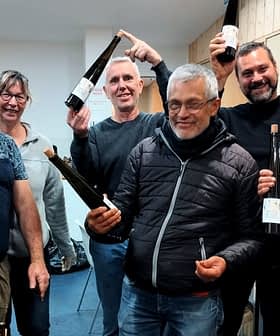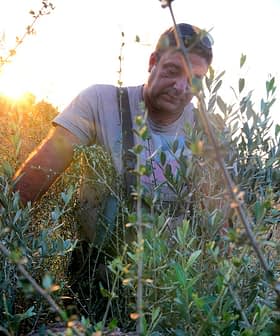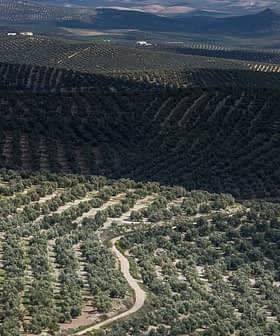California College’s Olive Harvest Brings Campus Together
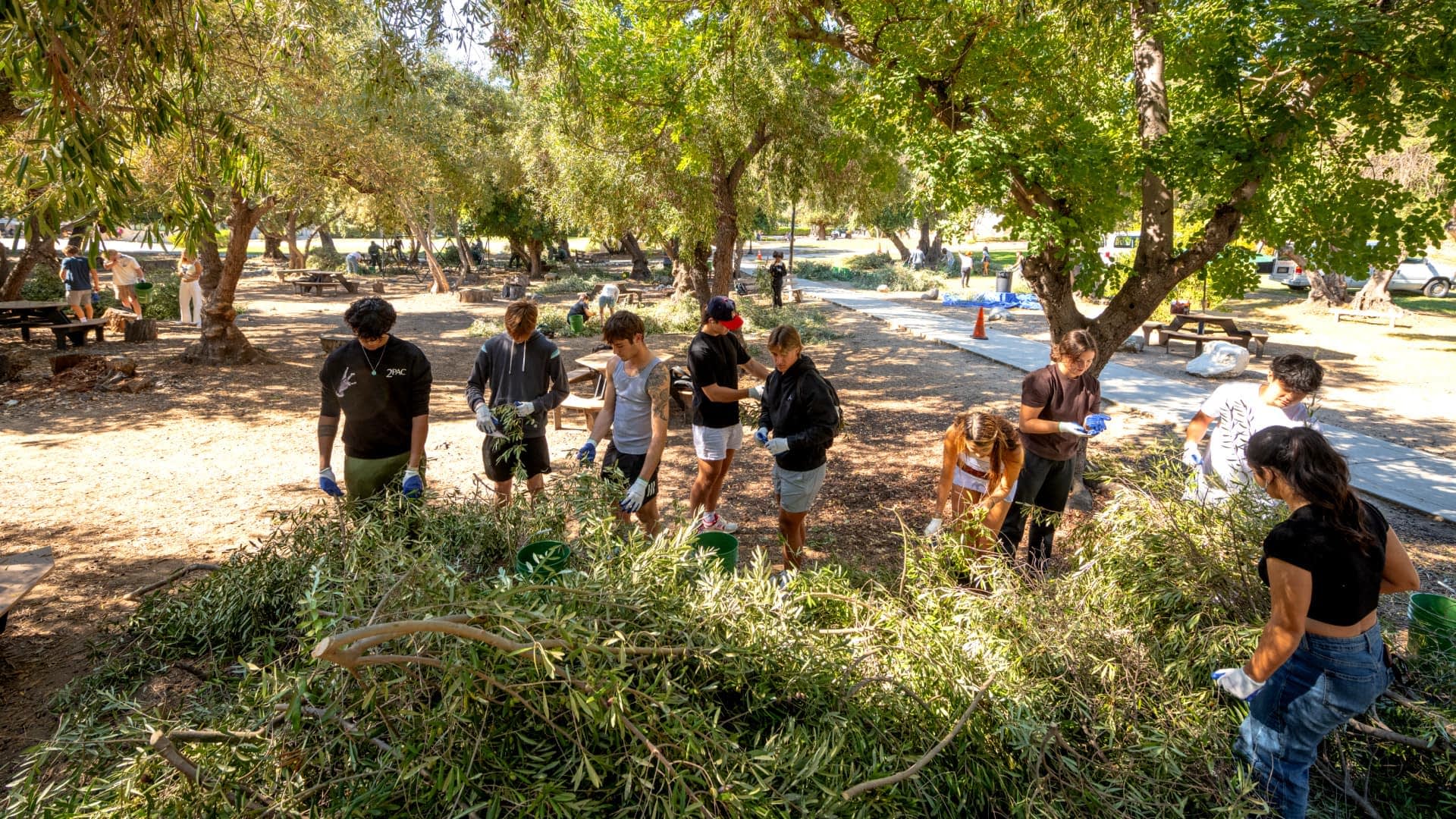
Occidental College in Los Angeles produced its first-ever extra virgin olive oil from campus olive trees, with the harvest serving as a hands-on learning experience to promote sustainability. The sustainability office hopes the olive harvest will spark community appreciation for the resilient trees and plans to continue research on soil quality, olive oil production, and environmental awareness.
The sustainability office at Occidental College in Los Angeles, California, has produced its first-ever extra virgin olive oil after hand-harvesting the campus’s 130-year-old Mission trees.
According to Alison Linder, the college’s sustainability coordinator, the olive harvest was inspired by a similar event at nearby Scripps College to create a hands-on learning experience and promote sustainability.
“I’m happy to support efforts like the olive oil harvest that bring climate action to the forefront of life on campus and show that we all have a part to play,” she told Olive Oil Times.
See Also:Small-Scale Farmers Celebrate Big-Time Success in Central California“Our campus, located in sunny, urban Southern California, is home to more than 125 fruiting olive trees, revered by observers for their beauty and shade provision, and by grounds and sustainability staff for their drought and climate resilience,” she added.
While there had previously been interest in an olive harvest, a newly staffed sustainability office and a particularly wet winter created the perfect opportunity to coordinate a successful harvest and community event.
“The intention of Occidental College’s first olive harvest was multifaceted: first, to bring awareness to climate-resilient, drought-tolerant landscaping practices used on its campus; second, to create a community around local food production; third, to introduce our reimagined office of sustainability to the Occidental community,” Linder said.
The sustainability office was recently revived due to student, staff, board and faculty interest in seeing a coordinated effort for sustainability planning and action on campus in the face of increasingly evident impacts of climate change.
Interest in its efforts was manifested by roughly 75 volunteers from all areas of the campus helping to pick olives at the event.

Mission olives were harvested, yielding 45 liters of olive oil. (Photo: Marc Campos, Occidental College)
“It was eye-opening for me to see the quantity of olives required to produce one gallon of oil, and several volunteers were surprised about the length of time required to fill a bucket,” Linder said. “In the office of sustainability, we hope this hands-on opportunity leads to a greater appreciation of the products we consume.”
Immediately after harvesting, Lola Trafecanty, Occidental College’s ground manager, and Isa Merel, the assistant sustainability coordinator, drove the olives two hours northwest to Ojai Olive Oil Company.
Ojai Olive Oil received and transformed the 500 pounds (225 kilograms) of olives immediately upon arrival. The olives were milled into 12 gallons (45 liters) of olive oil within four hours of harvesting.
“The novelty of such a momentous occasion brought an energy of excitement and enthusiasm to campus,” Merel told Olive Oil Times. “I was approached by community members who I would have never otherwise interacted with, telling me how excited they were for the harvest and thanking me for my hard work.”
Occidental College’s olive grove is more than 130 years old and started when landscape architect Beatrix Farrand, one of the founding 11 members and the only woman of the American Society of Landscape Architects, planted four trees in 1936.
Over time, the grove has expanded and now provides students, staff, faculty and campus fauna shade to relax, study and socialize, all while producing a viable crop for community use.
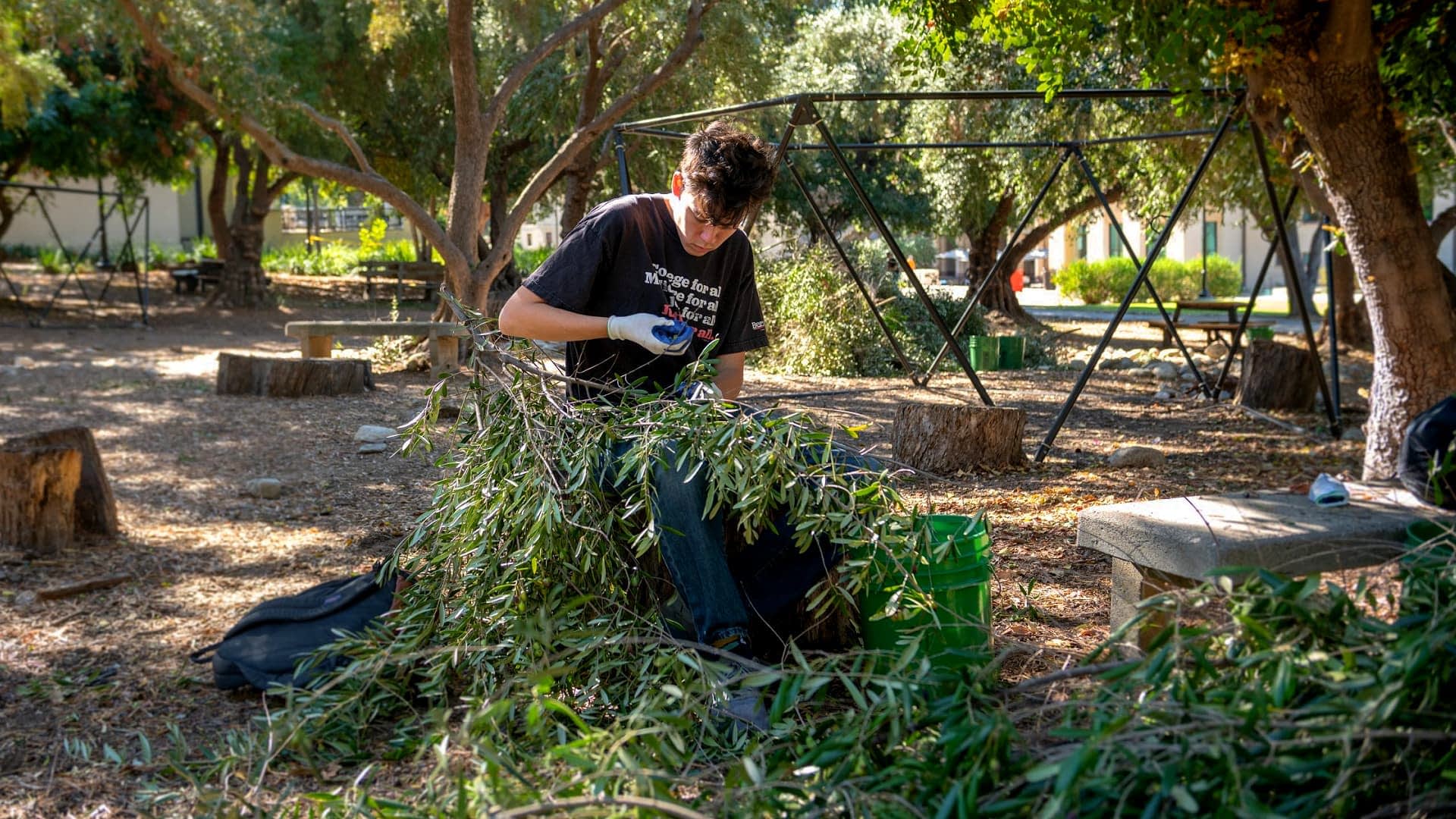
Organizers hope to turn the olive harvest into an annual, multidisciplinary learning experience for students. (Photo: Marc Campos, Occidental College)
Olive trees, although not native to California, are incredibly resilient in the face of high temperatures and drought, an increasingly necessary trait in campus landscaping as the summers become hotter and winters become drier due to climate change.
“We hope that through this inaugural harvest, and by honoring the trees’ bountifulness, we have sparked a community-wide appreciation for their distinctive resilience,” Linder said.
In the future, college officials see potential for ongoing research opportunities on soil quality, olive oil organoleptic qualities, economic impact and increased environmental awareness.
A research partnership is also envisioned with the biology and geology departments to test and remediate the soil using regenerative practices to increase nutrient availability and water retention capacity.
For instance, one project focuses on composting olive pomace on-site to create an all-natural fertilizer.
Occidental also hosts a food studies minor, an interdisciplinary area of study that encompasses environmental policy, sociology, culture and religion and kinesiology.
This interdisciplinary minor is an ideal platform for a directed research project on sustainable olive oil production, health and community benefits specific to Occidental College.
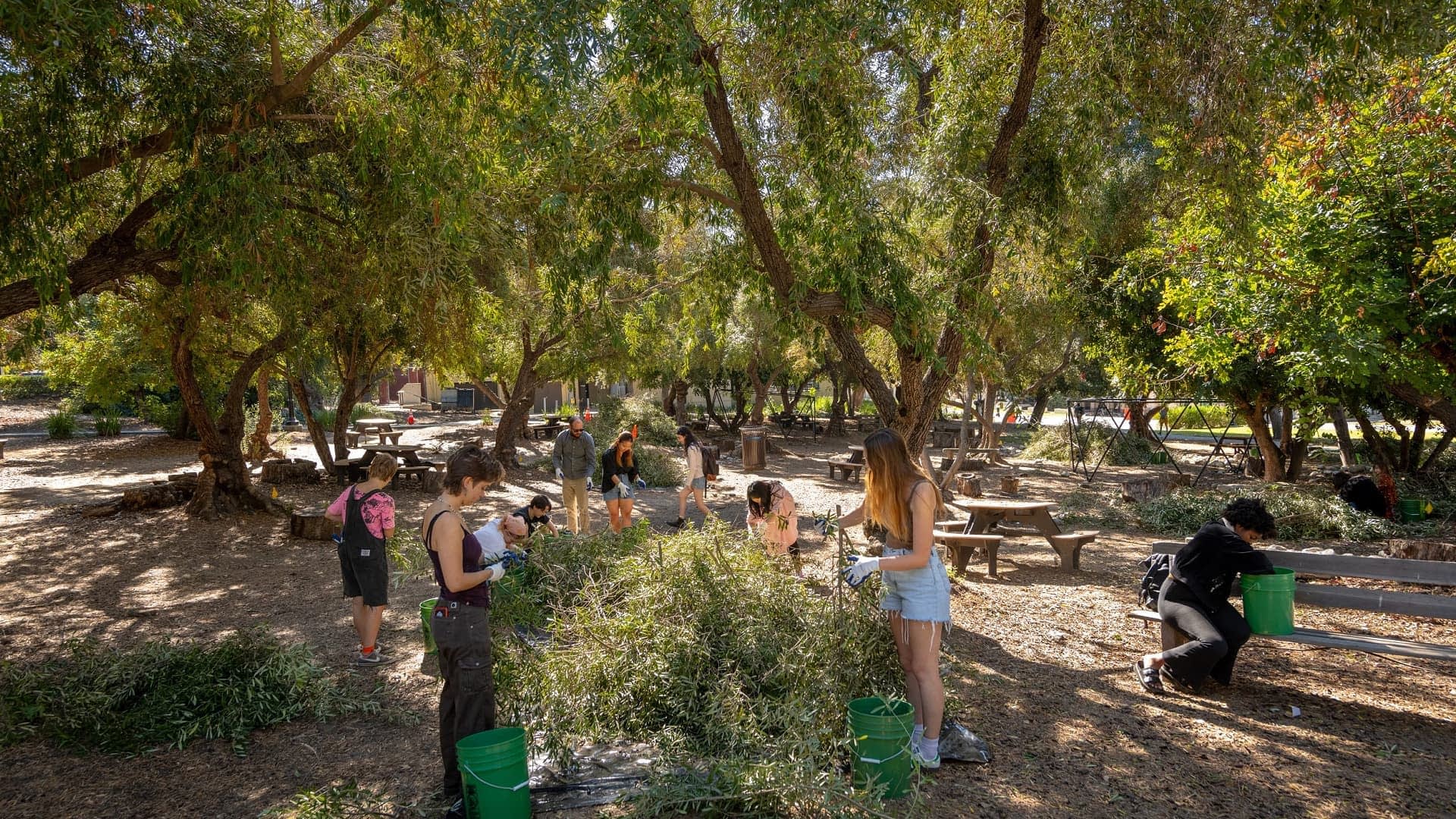
Occidental’s harvest was inspired by a similar event at Scripps College. (Photo: Marc Campos, Occidental College)
Plans include inviting students and faculty members to join the research and maintenance process to make the olive harvest an annual campus tradition.
During the harvest, the sustainability office was also approached by faculty interested in making ink from campus olives, showcasing the multiple possibilities with an event like this.
“After a four-year pause in our office of sustainability, it has been so rewarding for this to be the kick-off event for a new era of campus sustainability programs,’” Merel said. “I can’t wait to see where future iterations of this new campus tradition go.”
Student involvement also included designing the bottle label. “Working with a student to design the bottle label has been one of my favorite parts of this project; Alice Amdur’s creativity, talent and passion for art have been infectious,” Merel said. “I believe it makes this year’s olive oil much more special.”
“This was a great opportunity to bring together the interests and talents across campus in creating a sustainable and locally originated product,” Linder concluded.



